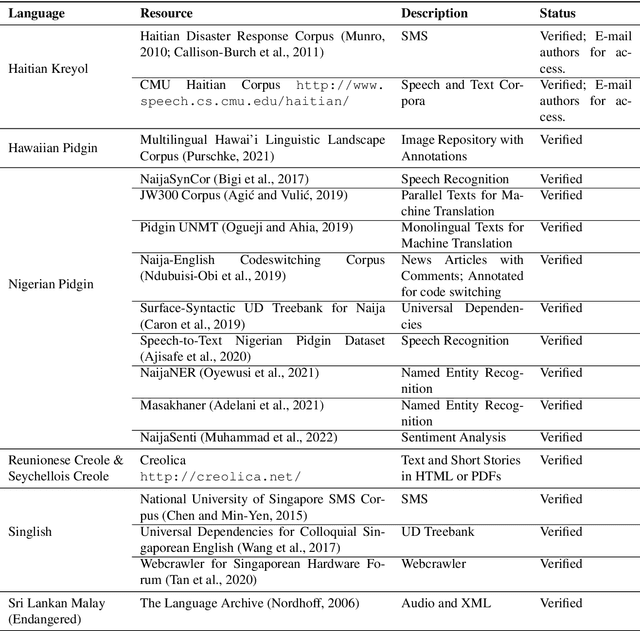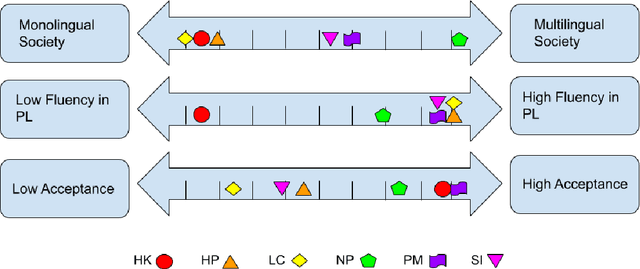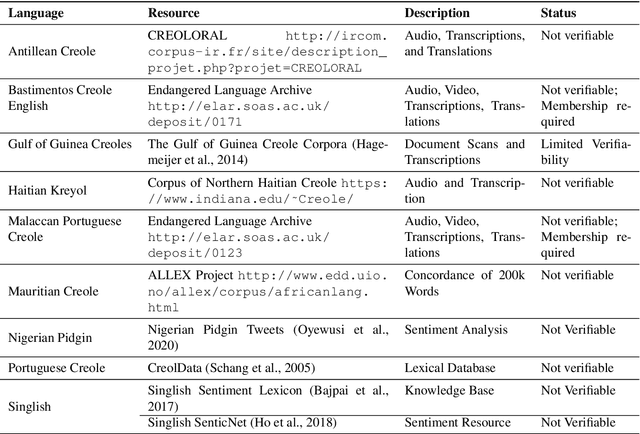What a Creole Wants, What a Creole Needs
Paper and Code
Jun 01, 2022


In recent years, the natural language processing (NLP) community has given increased attention to the disparity of efforts directed towards high-resource languages over low-resource ones. Efforts to remedy this delta often begin with translations of existing English datasets into other languages. However, this approach ignores that different language communities have different needs. We consider a group of low-resource languages, Creole languages. Creoles are both largely absent from the NLP literature, and also often ignored by society at large due to stigma, despite these languages having sizable and vibrant communities. We demonstrate, through conversations with Creole experts and surveys of Creole-speaking communities, how the things needed from language technology can change dramatically from one language to another, even when the languages are considered to be very similar to each other, as with Creoles. We discuss the prominent themes arising from these conversations, and ultimately demonstrate that useful language technology cannot be built without involving the relevant community.
 Add to Chrome
Add to Chrome Add to Firefox
Add to Firefox Add to Edge
Add to Edge